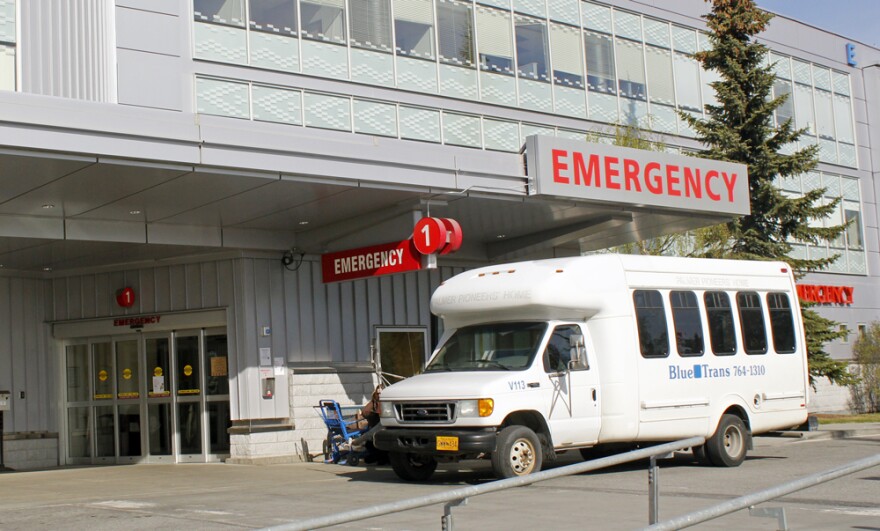In Anchorage, emergency room visits were down 30-50 percent in Alaska’s largest hospitals in March and April, according to hospital managers.
That might sound like a good thing, but emergency room doctors say that the statistic is evidence of a dangerous problem: patients not seeking medical care they need because they are afraid of catching the coronavirus.
Dr. Steve Compton, a cardiologist with the Alaska Heart Institute in Anchorage said the problem is serious.
“We’ve had a number of patients who develop severe chest pain and rather than come in to be treated, they worry about the risk of COVID, wait at home until it’s too late and then show up days into it and expire in the emergency room,” he said.
Compton said that during the first two weeks of tracking, cardiologists identified a half-dozen patients who had “poor clinical outcomes” because they delayed care over fear of catching the coronavirus in an emergency room.
“It’s very disheartening to see people ending up with irreversible weakening of the heart because they showed up too late for us to turn their heart attack around, or people just plain dying from cardiogenic shock,” he said.
Compton said doctors stopped tracking these cases after a few weeks, but he has seen deaths resulting from people not seeking care they need. It can be hard to attribute a bad outcome to fear of COVID, but Compton said he had some examples where it was clear: patients told him they didn’t want to come in, despite doctors’ urging.
Some of his observations line up with national trends. An April survey by the American College of Emergency Physicians shows that 80 percent of adults reported a fear of catching COVID-19 in an emergency room.
An academic paper in the Journal of the American College of Cardiology showed a 40 percent drop in the number of patients being treated for severe heart attacks during the last weeks of March. Researchers suspect that was largely because of patients not seeking care.
It’s not just heart attacks. Dr. David Scordino is the ER Director of Alaska Regional.
“Appendicitis and cholecystitis for gallbladder inflammation – those are also not showing up as frequently or showing up as rather delayed,” he said.
Reports of strokes have also been down, suggesting people aren’t seeking treatment at hospitals as much as they should. And unlike other places where hospitals are overwhelmed with patients, in Alaska there are still plenty of hospital beds. Statewide on Thursday morning, the state reported nearly 1,000 free inpatient beds.
Michael Bernstein, the chief medical officer at Providence Alaska Medical Center in Anchorage, said he gets why people are afraid.
“That’s certainly understandable when they may have watched the national news and seen places like New York or northern Italy where things were very out of control. We fortunately never got to that point,” he said.
Hospitals in Anchorage never reached capacity. The state Department of Health and Social Services said it’s not aware of any cases of hospital-based transmission of coronavirus. But that doesn’t mean hospitals are taking any chances. Patients are screened upon entering, and those getting elective surgeries are tested prior to operations.
Patients should know that by delaying care in the case of an emergency, they risk taking up bed space for more time than if they seek immediate care for strokes, heart attacks, or appendicitis, Bernstein said.
“As opposed to being a one-night or two-night event, this can turn into a multi-week event. So that one person waiting actually that delay actually harms the bed capacity,” Scordino said.




